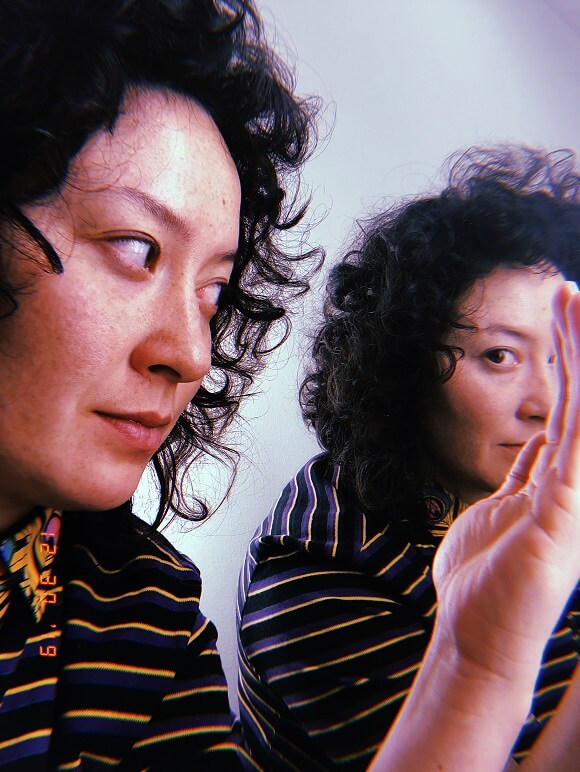
MAGGIE L. ROGERS: What drew you to the play?
ALYZA DELPAN-MONLEY: Dance Nation offers a fantastic playground for movement. It is the exact type of playground that fuses my mediums of interest — it pairs the whimsical, transportive possibilities of dance with the say-what-you-mean and mean-what-you-say literalism of theatrical scenes. The show allows you to be consumed by each element. And I love that the play does not have a main character. It is really about the group dynamic and the individuals within, and I continue to find myself relating to each character at unexpected moments.
MLR: Could you talk a little about how you and Bobbin Ramsey are acting as co-directors?
ADM: This will be Bobbin’s and my third project working together. In the past we have worked together in the choreographer/director roles. For Dance Nation, movement is so interwoven into the storytelling and the way the play is written, that it just made sense for us to team up in this new capacity and co-direct. One thing we’ve discovered is how much character work exists inside of the dances. The characters are gestating and discovering a lot while dancing together. We’ve been front-loading the rehearsal process with a lot of the choreography, and the way that that has informed the scene work and the direction of the play is apparent.
MLR: How are you approaching the choreography?
ADM: There are two main choreographic approaches I have in this show. One is the real-world dance routines and the movement that happens within the studio. My approach in these movement sections is to embody the character of Dance Teacher Pat and make movement that fits the competition dance style. I get to go with my cheesiest impulses and find the earnest intention. It is important for me that we believe that the performers are consumed by the thrill of the stories their bodies get to tell, because I remember how exciting it was when a dance let me to try on and embody ideas of love, fierceness, beauty or sadness.
The other form of movement in this show takes place in a more nebulous, abstract space. The space where the show cracks open and leaves reality. These movement sequences are more about connecting with the actors’ individual movement impulses, participating in free-writes, group discussions and improvisation. It is the antithesis of the streamlined exactitude of “who is the best” that we see within the toxic environment of competition dance team. Instead it is about exploring for ourselves where inside your body your impulses come from and how you can follow those passions and desires through movement.
MLR: The play talks about the blooming ambition and power of young women. The character Ashlee states, “What am I going to do with all this power?” What would you have done with all your power if you had fully tapped into when you were a pre-teen?
ADM: Ahh…. I mean what would I do now if I could fully tap into all my power at this age?! Haha. ha. I think that as a kid I was very concerned with being noticed and I was taught at a young age that you were noticed when you excelled. And I did excel, but not unlike Amina in our play, excelling in school and athletics. Dance came at the cost of not having a social life and of many friends leaving me because they didn’t want to live in my shadow. I think that for me, if I was fully empowered at that age, I might have realized that I could be accepted even if I wasn’t excellent, and that these standards of excellence and who is allowed to excel are incredibly repressive systems with such a narrow view of valuing the complex ways that people show up in groups and communities. In my full pre-teen power, I could have actually listened to what I wanted to do and trust that if I was honest about my thoughts and what I believed, that people would be able to connect deeper instead of living within the costumes of what was expected of us. And to know that none of us excels without the support and excellence of everyone else around us.